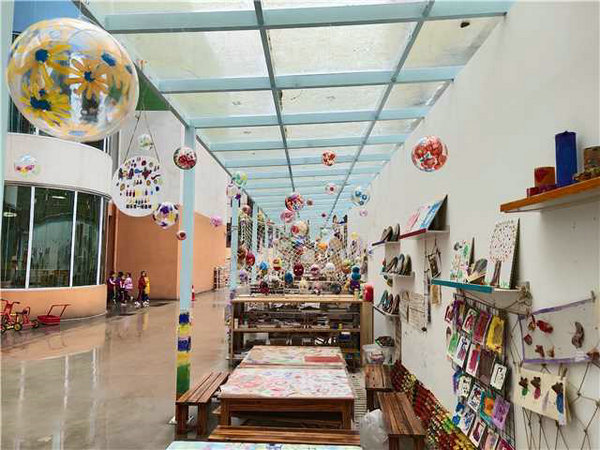Rural education a lesson in success


Walking out of the kindergarten's door, you can see terraced fields in the clouds. Inside the school, a small garden has various plants, which enhances the pupils' ability to observe and think and helps them gain an understanding of natural systems through firsthand experience, according to the teacher.
Art lessons, though, face some obstacles. There is a lack of musical instruments and painting materials but Rao has managed to find help from the internet.
"I always feel that I am not their teacher, but someone who grows up with my pupils and the kindergarten," Rao says.
Lu Xiaoqin, a teacher at Huaihuaping Village Kindergarten, echoes the view that the quality of preschool education has been enhanced in the recent years.
"Our curriculum setting is diversified, making learning interesting for children," says Lu, 36, adding that at her class, she prefers to let pupils decide what they want to play, whom they want to play with and how.

Children's artworks are displayed on the walls. There is a reading corner, and space for art creation and handicrafts.
After school, Lu still has to do a lot of tasks, such as lesson planning, evaluations and room preparation for the next day.
Including Tangbian and Huaihuaping village kindergartens, Tongren has 1,822 preschools built or renovated, enrolling about 143,300 children. Last year, the enrollment rate for three-year preschool education in the city increased to more than 96 percent from about 45 percent in 2010, according to statistics from the local education commission.
Behind the numbers are the painstaking efforts taken by local policymakers and educators. In 2014, Tongren government launched a two-year preschool program, which invested nearly 150 million yuan ($22.34 million) in kindergarten building, making preschool education accessible to all the children in villages and empowering them with knowledge through playful learning.




































